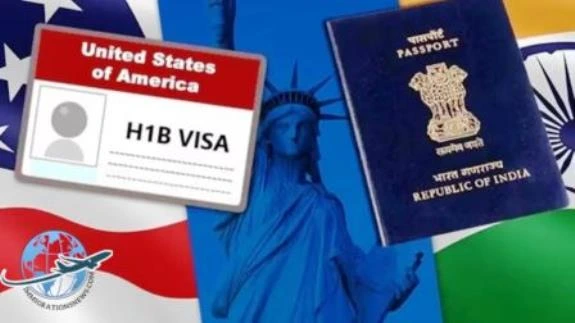In recent years, the U.S. government, under President Donald Trump’s leadership, has rolled out sweeping changes to immigration enforcement. These changes are designed to strengthen the legal framework used to enforce immigration laws and improve the infrastructure necessary for deportations. However, while much of the focus has been on enforcement against individuals, employers must also understand how these new policies affect their responsibilities when it comes to hiring unauthorized workers.
With the rise of I-9 audits and ICE workplace raids, businesses are now more vulnerable to scrutiny and penalties. This article will explore the implications of these changes and how employers can protect themselves from legal risks.
The Focus on Immigration Enforcement in Businesses
Since taking office, President Trump’s administration, through the leadership of Tom Homan, has pushed for a more aggressive stance on workplace immigration enforcement. This includes a focus on businesses that hire unauthorized workers. Employers should be prepared for an increase in both I-9 audits and ICE enforcement actions, which are now a significant part of the immigration enforcement landscape.
What Are I-9 Audits?
Under the Immigration and Nationality Act, employers must verify the identity and employment eligibility of all individuals hired in the United States through Form I-9, also known as the Employment Eligibility Verification form. I-9 audits are when U.S. Immigration and Customs Enforcement (ICE) inspects a company’s I-9 records to ensure compliance.
Here’s how an I-9 audit typically works:
- ICE sends a Notice of Inspection to request all I-9 forms and supporting documents for review. Employers typically have three days to produce these records.
- The ICE auditor inspects the documents for violations such as incomplete, incorrect, or missing forms.
- In some cases, penalties may be levied if violations are found, which can be significant for businesses.
Expected Increase in I-9 Audits
In 2020, during the first Trump administration, ICE aimed to conduct between 12,000 to 15,000 I-9 audits, a sharp increase from the 3,000 to 3,500 audits conducted under previous administrations. The trend of heightened enforcement is expected to continue under the second Trump administration, with many businesses facing an increased risk of being audited.
| Audit Year | Expected I-9 Audits | Comparison with Past Administrations |
|---|---|---|
| 2020 | 12,000 to 15,000 | Significant increase from previous years |
| Future Trends | Even higher numbers anticipated | Increased scrutiny on businesses hiring unauthorized workers |
ICE Enforcement Actions: What Employers Should Expect
ICE workplace raids are another key component of the administration’s immigration enforcement strategy. Raids typically occur after the agency receives intelligence about employers hiring unauthorized workers or harboring individuals without proper documentation. In many cases, ICE agents arrive at a business without prior notice and execute the raid with a warrant.
Notable ICE Raids Under the Trump Administration
During the first Trump administration, in April 2018, ICE conducted the largest workplace raid in over a decade, arresting nearly 100 workers at a meat-processing plant in Tennessee. This raid was triggered by information from the employer’s bank, which reported large cash withdrawals. Similar raids are likely to continue under the current administration.
| Incident | Business Type | Raids/Enforcement Action |
|---|---|---|
| April 2018 | Meat-processing plant | 100 workers arrested in Tennessee |
| Future Raids | Various industries | ICE actions expected to continue |
The Political Climate and Its Effect on Enforcement
The political climate surrounding immigration enforcement plays a crucial role in shaping the ICE enforcement landscape. A significant portion of the U.S. public supports tougher immigration enforcement, which could trigger more frequent investigations based on tips and complaints from competitors, disgruntled employees, or even neighbors. As a result, federal prosecutors are more likely to prioritize immigration enforcement, including violations in the workplace.
Civil and Criminal Liabilities for Employers
The focus on workplace immigration violations exposes businesses to civil and criminal liabilities if they hire unauthorized workers. Both I-9 audits and ICE raids can disrupt operations, and businesses may face severe consequences for failing to comply with immigration laws.
Civil Penalties
Employers who fail to comply with I-9 documentation requirements could face civil penalties. These can range from:
- $281 to $2,789 per violation for paperwork errors (e.g., incomplete or incorrect forms)
- $698 to $5,579 per violation for hiring unauthorized workers
Criminal Penalties
In cases of willful violations, employers can face criminal charges under Title 8, U.S. Code, Section 1324. Specifically, if an employer knowingly hires 10 or more unauthorized workers within 12 months, this is considered a felony, and the business could face:
- Up to 5 years in prison for each offense
- Significant fines for the company
| Violation Type | Penalty | Penalty Range |
|---|---|---|
| I-9 Documentation Error | Civil penalty | $281 to $2,789 per violation |
| Hiring Unauthorized Workers | Civil penalty | $698 to $5,579 per violation |
| Willful Violations | Criminal charges | Up to 5 years in prison, significant fines |
Steps Employers Can Take to Protect Themselves
Given the increased ICE enforcement actions and the potential consequences of non-compliance, employers should take steps to minimize risk:
- Conduct Internal Audits: Regularly check I-9 forms to ensure compliance.
- E-Verify Enrollment: Enroll in E-Verify, an online system that verifies the employment eligibility of new hires.
- Train HR Staff: Educate human resources teams on proper documentation and legal responsibilities when hiring employees.
Navigating the Increased Risk of Immigration Enforcement
With immigration enforcement intensifying under the Trump administration, businesses must understand the full scope of their responsibilities and the risks associated with non-compliance. From I-9 audits to ICE raids, the likelihood of increased scrutiny on employers has never been higher. Employers who take proactive steps to ensure their hiring practices comply with immigration laws can avoid significant fines and criminal penalties, safeguarding their business in a politically charged environment.
By staying informed about the latest immigration enforcement policies and acting accordingly, businesses can better navigate the changing landscape and continue to operate smoothly.



